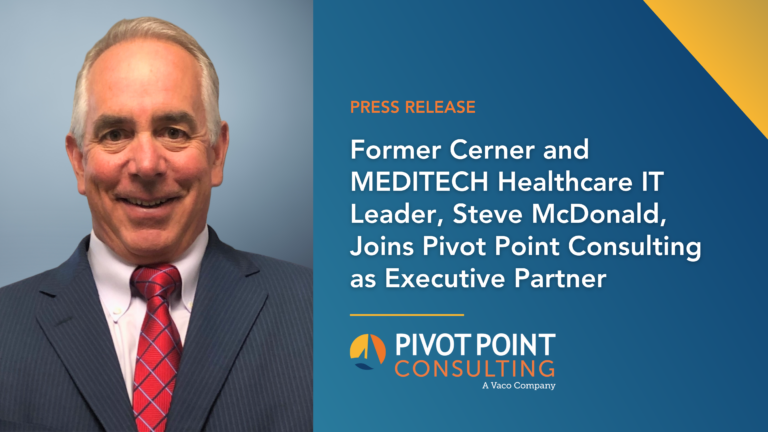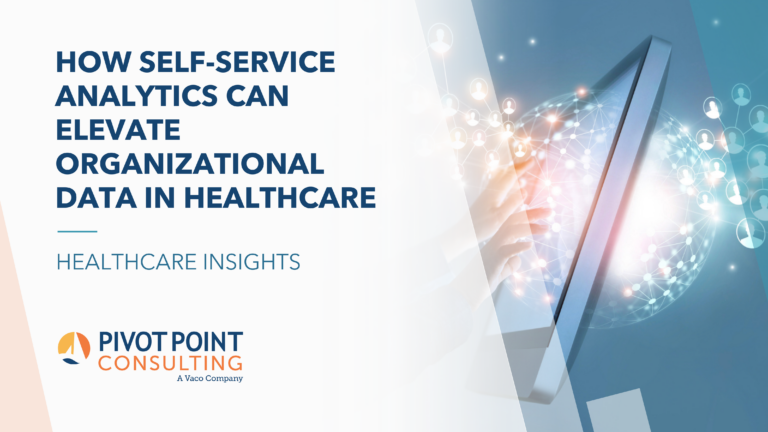
Pivot Point Consulting Named Best in KLAS: Managed IT Services
Pivot Point Consulting Named Best in KLAS: Managed IT Services Third consecutive year as top performer for Managed Services based on exceptional client feedback NASHVILLE,

Pivot Point Consulting Named Best in KLAS: Managed IT Services Third consecutive year as top performer for Managed Services based on exceptional client feedback NASHVILLE,

NASHVILLE, Tenn. – Nov. 20, 2024 – Pivot Point Consulting, a Vaco Holdings company and #1 Best in KLAS: Managed IT Services firm, announced today that Steve

Pivot Point Senior Vice President of Healthcare Management Consulting, Kulwant Gill, was recently featured in Healthcare Business News on his thoughts around revenue cycle management.

NASHVILLE, Tenn. – Oct. 17, 2024 – Pivot Point Consulting, a Vaco Holdings company and #1 Best in KLAS: Managed IT Services firm, announced today that Scott

NASHVILLE, Tenn. – Oct. 1, 2024 – Pivot Point Consulting, a Vaco Holdings company and the #1 Best in KLAS: Managed IT Services firm, announced

NASHVILLE, Tenn. – August 13, 2024 – Pivot Point Consulting, a Vaco Holdings company and #1 Best in KLAS: Managed IT Services firm, announced today that Dr.

Data innovation leveraging analytics and AI is essential to advancing the strategy and operations of any business. In healthcare, however, it is imperative—quite literally, lives

Rachel Marano is being acknowledged in this year’s Leaders in Technology awards for her relentless pursuit of excellence, innovation and lasting impact on the world

Management Consulting Leader Kulwant Gill Joins Pivot Point Consulting as Senior Vice President The addition of Gill enables Pivot Point Consulting to expand client solutions

Pivot Point Consulting Announces Three New Leadership Appointments Healthcare consulting and data experts Brian Beinborn, Kathy Krypel and MJ Stojak join expanding team to drive

Pivot Point Consulting Wins Two 2024 Best in KLAS Awards for Excellencein Managed IT Services and Technical Services First-ever firm awarded #1 Best in KLAS:

Pivot Point Founder and President Rachel Marano was recently featured in Fast Company on her thoughts around workaholism. Discussing her own journey, Rachel pointed to
Copyright © 2025 Pivot Point Consulting, a Vaco Company. All Rights Reserved.
Together, let’s take a professional adventure bigger than we ever imagined. Join our newsletter list for inspiration, motivation, and exploration.